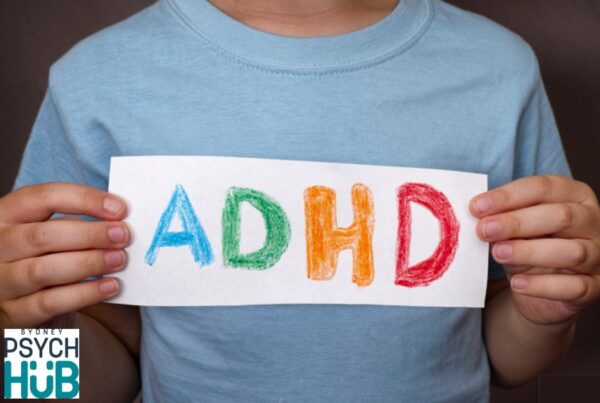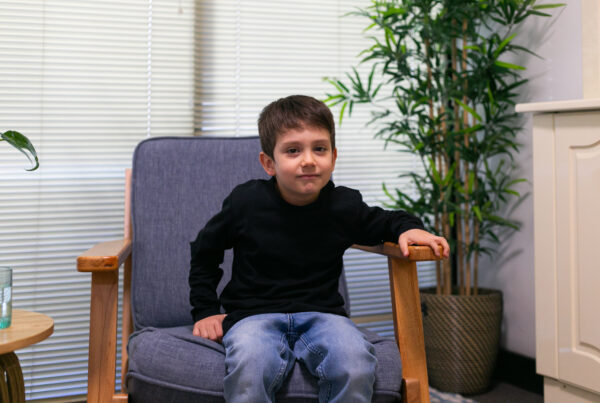A child’s mental wellbeing is important and can impact their future, placing them at risk of various psychological, physical health, and social and lifestyle risks.
According to the last “Young Minds Matter” national survey conducted in 2014, nearly 1 in 7 (13.9%) children aged 4-17 years old experienced mental health issues in 2013. That’s nearly 3.5 million children based on the 2020 population! Naturally, parents and caregivers are well-placed to help strengthen their children’s mental and emotional health.
The 4C’s help build mental and emotional well-being
The 4C’s are principles for parenting (Care, Consistency, Choices, and Consequences) that help satisfy childrens’ psychological, physical, social, and intellectual needs and lay solid foundations for mental well-being. We’ve provided some examples for each category below:
Care means showing acceptance and affection. For instance:
- Create a safe space for speaking with your child by being non-judgemental about your child’s issues.
- Demonstrate affection and soothe your child with hugs, kisses, praise, and encouragement.
- Basing your actions on love and care, e.g. “I wouldn’t be a good mother if I let you eat so much candy”
- Increasing your child’s emotional intelligence by helping them label their emotions and linking them with causes.
- Help develop empathy through perspective-taking, e.g. “I know confrontation is uncomfortable, but your friend is probably confused and upset because they don’t know why you’re not speaking with them – wouldn’t you be?
- Being available to your child’s needs and making regular times to check-in about what is happening in their lives. This can include offering assistance by teaching, problem-solving, offering guidance, and practical assistance.
Consistency provides children with the view of a safe and predictable environment that helps develop their confidence.
- Being as consistent as possible in our attitudes, expectations, and applying repercussions helps children learn to make connections between their behaviours and the people/world around them.
- If you can’t be consistent, do your best to explain why you aren’t consistent.
- It is important that both parents are on the same page. This can sometimes require us to have a shared understanding of how to parent.
- Acknowledging uncertainty (e.g. during COVID-19) to help them understand their emotions and reactions, and assuring them that some routines (within control) will remain the same, e.g. “Feeling uneasy because of what’s happening in the world is normal, but we’re here for you. We’ll still be expecting you to do the chores and study, even if you can’t attend school”.
- Having sensitive conversations with your partner in private and not exposing children to adults’ concerns and stressors is important, especially in these times of change.
Choices help children develop autonomy and decision-making skills.
- Providing choices available to your children, e.g. “you can either have a marshmallow now, or if you wait 10 mins, you can have three”.
- For older children, helping them understand all of the choices they have available, e.g. “I hear you’ve considered options A and B. Have you considered C, D, or E yet?”
- Helping children understand that avoidance or non-action is a choice as well that usually doesn’t help solve the root cause of their issues, e.g. procrastinating doesn’t help them prepare for an exam and probably increases their stress in the long-term. They can do a chapter of notes each day instead.
- When appropriate, explaining or demonstrating how to make calculated risks and allowing children the freedom to make small mistakes, with an emphasis on learning and resilience if things don’t work out.
Consequences means applying the repercussions you say you will, whether positive or negative. This can come in the form of rewards or punishments. Some applications include:
- First, make expectations of behaviours clear. For instance, Time Outs may be confusing for younger children if they haven’t been shown “clean your room” means placing all their toys back into the toy box. Provide “positive” suggestions which direct appropriate behaviour, e.g. instead of “don’t stand”, you can ask them to “sit still please”
- Then, connect behaviours with their consequences, e.g. “You can speak with me politely about having ice cream, but if you choose to keep shouting, you will have to go to your room and there will be no ice cream for you”.
- Feedback should be provided as close to the un/desired behaviour as possible and emphasize your child’s behaviours instead of labelling their character, e.g. “You did something nice/unpleasant”, rather than “you are bad”).
- Encouragement of children’s efforts and the strategies they use, rather than their abilities, AND connecting it to positive consequences of learning and progress help develop Growth Mindsets, which can be associated with flexibility, resilience, and mental wellbeing. An example could be, “Well done, you paid a lot of attention and experimented with different solutions, which helped figure out the answer!”
Unhelpful parenting styles: Three Examples
We can use the 4C’s with the best of intentions, but sometimes even the best intentions can be unhelpful. Below are some cases which could be unhelpful:
- Helicopter parenting is where parents hover over their children, controlling nearly every aspect of their lives to help their children on the path to success. Although high expectations and schedules can help children excel, exceedingly high expectations, a narrow definition of “success”, a focus on outcomes, and an authoritarian style can affect children’s self-esteem and thus, their mental wellbeing now and later in life.
- Bulldozer parenting is where parents remove all obstacles and stresses for their children to ensure their safety and reduce hardships. While we want our children to be somewhat comfortable, overdoing this does not allow them to develop autonomy, coping skills, or learn about risks and consequences – skills essential for life.
- Negligent or uninvolved parenting is unresponsive to a child’s needs physically, emotionally, socially, or intellectually, which places children at much higher risk of mental health issues, social problems because it forces them to fend for themselves in all situations, making them vulnerable or over reliant upon peers’ influences.
Parenting is tough and we need to be mindful of how our attitudes and behaviours impact our children. The 4C’s can be applied differently given different contexts and children, but the principles help provide consistent, healthy norms and support for children to flourish.
If you are interested in specific techniques and strategies to help your child, Contact us today for an appointment.




